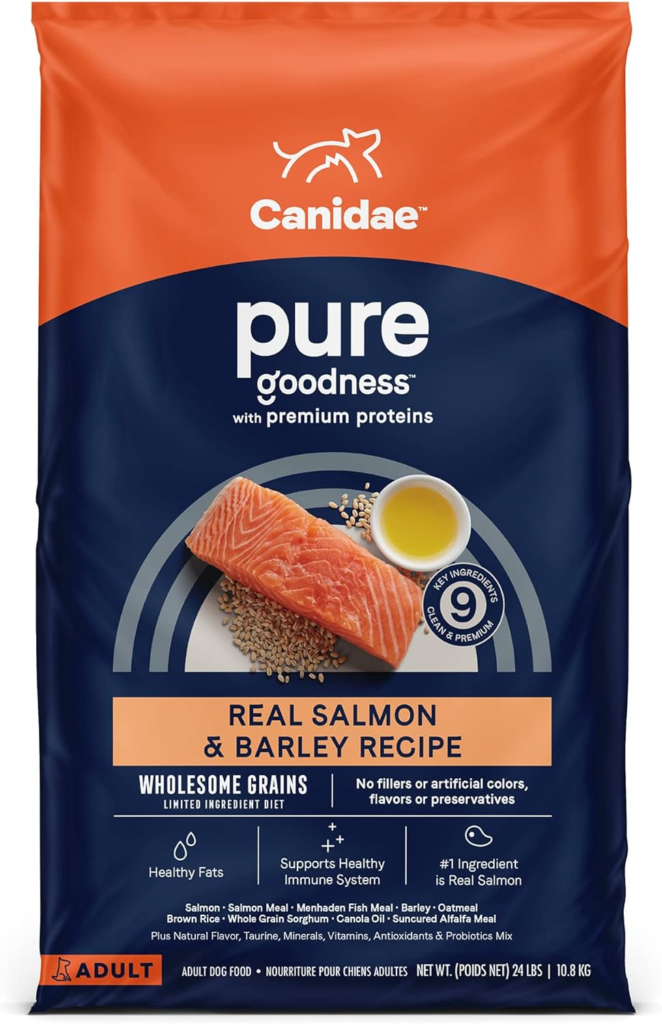Our top choice for budget Dachshund food?

When it comes to keeping your long-haired Dachshund healthy and happy, choosing the right food is essential. Long-haired Dachshunds have specific nutritional needs to maintain their luxurious coat and overall well-being. In this article, we will explore the nutritional requirements of long-haired Dachshunds and provide key takeaways to help you make the ideal food choices for your furry friend.
Key Takeaways
- A balanced diet is crucial for the health of your long-haired Dachshund.
- Key nutrients such as omega-3 fatty acids, protein, and vitamins are essential for a healthy coat.
- Avoid common allergens such as grains and artificial additives that can cause skin irritations.
- Consider the benefits of both dry and wet food options for your long-haired Dachshund.
- Homemade diets can be an option but require careful consideration and consultation with a veterinarian.
Understanding the Nutritional Needs of Long-Haired Dachshunds
The Importance of a Balanced Diet
A balanced diet is crucial for the overall health and well-being of your long-haired Dachshund. It provides the necessary nutrients to support a healthy coat and prevent common issues such as dryness, brittleness, and excessive shedding.
To ensure your Dachshund’s diet is balanced, it should include a combination of protein, carbohydrates, healthy fats, vitamins, and minerals. Protein is particularly important for maintaining a strong and shiny coat, while carbohydrates provide energy for daily activities.
Tip: When selecting commercial dog food, look for options that list real meat as the first ingredient and avoid those with fillers or artificial additives.
Here is a table summarizing the key nutrients for a healthy coat:
| Nutrient | Function |
|---|---|
| Protein | Supports coat growth and strength |
| Omega-3 fatty acids | Reduces inflammation and promotes a shiny coat |
| Biotin | Enhances coat health and reduces shedding |
| Zinc | Supports hair follicle development |
Remember, a balanced diet is the foundation for a healthy and lustrous coat for your long-haired Dachshund.
Key Nutrients for Healthy Coat
Long-haired Dachshunds require specific nutrients to maintain a healthy coat. Protein is essential for hair growth and strength, so it is important to choose a dog food that has a high-quality source of protein as the main ingredient. Additionally, omega-3 fatty acids play a crucial role in promoting a shiny and lustrous coat. These fatty acids can be found in fish oil, flaxseed, and other supplements. Vitamin E is another important nutrient that helps maintain the health of the skin and coat. It acts as an antioxidant, protecting the cells from damage. Including foods rich in vitamin E, such as spinach, broccoli, and almonds, can benefit your long-haired Dachshund’s coat.
To ensure your long-haired Dachshund’s coat stays healthy, it is also important to provide them with adequate hydration. Make sure your dog has access to fresh water at all times. Proper hydration helps keep the skin moisturized and the coat hydrated. Additionally, regular grooming and brushing can help remove tangles and prevent matting, promoting a healthy and shiny coat.
In summary, a balanced diet for long-haired Dachshunds should include a high-quality source of protein, omega-3 fatty acids, and vitamin E. Adequate hydration and regular grooming are also essential for maintaining a healthy coat.
Avoiding Common Allergens
When it comes to feeding your long-haired Dachshund, it’s important to be aware of common allergens that can cause skin irritations and digestive issues. Some common allergens for dogs include wheat, soy, corn, and dairy. These ingredients can trigger allergic reactions in sensitive dogs, leading to symptoms such as itching, redness, and gastrointestinal upset.
To avoid potential allergens, it’s recommended to choose a dog food that is grain-free and limited ingredient. Grain-free options eliminate wheat, corn, and soy, while limited ingredient diets minimize the number of potential allergens present. Look for dog foods that use alternative protein sources like chicken, lamb, or fish and avoid those that contain artificial additives or preservatives.
In addition to selecting the right type of food, it’s also important to gradually transition your Dachshund to a new diet to minimize any digestive upset. Start by mixing a small amount of the new food with their current food and gradually increase the proportion over a week or two until they are fully transitioned.
Remember, every dog is unique, so if you suspect your long-haired Dachshund has food allergies, it’s best to consult with your veterinarian for a proper diagnosis and guidance on the most suitable diet for your furry friend.
Our top choice for budget Dachshund food?

Choosing the Right Type of Food for Your Long-Haired Dachshund
Dry Food vs. Wet Food
When choosing the ideal food for your long-haired Dachshund, one important decision to make is whether to feed them dry food or wet food. Both options have their pros and cons.
Dry food is convenient and easy to store. It helps to keep your dog’s teeth clean and can be left out for longer periods without spoiling. However, it may not be as palatable for some dogs and can be harder to digest.
Wet food, on the other hand, is more flavorful and easier to chew, making it a good option for dogs with dental issues. It also provides more moisture, which can be beneficial for long-haired Dachshunds prone to dry skin. However, it needs to be refrigerated once opened and can be more expensive.
To help you make an informed decision, here is a comparison of dry food and wet food for long-haired Dachshunds:
| Dry Food | Wet Food |
|---|---|
| Convenient and easy to store | More flavorful and easier to chew |
| Helps keep teeth clean | Provides more moisture |
| Can be left out for longer periods | Needs to be refrigerated once opened |
| May not be as palatable for some dogs | Can be more expensive |
Remember, every dog is different, so it’s important to consider your dog’s individual needs and preferences when choosing their food.
Considerations for Homemade Diets
When considering a homemade diet for your long-haired Dachshund, there are several important factors to keep in mind.
1. Nutritional Balance: It is crucial to ensure that your dog’s homemade diet provides all the necessary nutrients in the right proportions. Consult with a veterinarian or a canine nutritionist to create a well-balanced meal plan.
2. Ingredient Selection: Choose high-quality ingredients for your dog’s homemade meals. Include lean proteins, such as chicken or turkey, along with a variety of vegetables and grains. Avoid using ingredients that are toxic to dogs, such as onions, garlic, and chocolate.
3. Food Preparation: Proper food handling and preparation are essential to prevent contamination and ensure food safety. Cook meats thoroughly, wash vegetables, and store homemade meals in the refrigerator or freezer to maintain freshness.
4. Monitoring and Adjusting: Regularly monitor your dog’s weight, coat condition, and overall health when feeding a homemade diet. Make adjustments as needed to ensure your dog is receiving the right amount of nutrients.
Remember, homemade diets can be a great option for some long-haired Dachshunds, but it’s important to do thorough research and consult with professionals to ensure your dog’s nutritional needs are met.
Specialty Diets for Long-Haired Dachshunds
Long-haired Dachshunds may benefit from specialty diets that cater to their unique needs. These diets are specifically formulated to promote a healthy coat and overall well-being. High-quality dog food brands often offer specialty options for long-haired breeds, which contain optimal levels of omega-3 fatty acids and other essential nutrients. These nutrients help maintain the health of the skin and coat, reducing the risk of excessive shedding and dryness.
In addition to omega-3 fatty acids, specialty diets for long-haired Dachshunds may also include ingredients like biotin and vitamin E. Biotin is known for its role in promoting healthy hair growth, while vitamin E acts as an antioxidant, protecting the skin and coat from damage caused by free radicals. These ingredients work together to support the long-haired Dachshund’s coat health and shine.
When considering a specialty diet for your long-haired Dachshund, it’s important to consult with your veterinarian. They can provide guidance on the specific nutritional needs of your dog and recommend the best options available. Remember to gradually transition your dog to the new diet to avoid any digestive upset.
Tips for Choosing a Specialty Diet:
- Look for a diet that is specifically formulated for long-haired Dachshunds.
- Check the ingredient list for key nutrients like omega-3 fatty acids, biotin, and vitamin E.
- Consider your dog’s individual needs and any specific dietary restrictions.
- Consult with your veterinarian for personalized recommendations.
By choosing a specialty diet that meets the unique nutritional needs of your long-haired Dachshund, you can help ensure they have a healthy and lustrous coat.
Conclusion
In conclusion, it is important to understand the nutritional needs of long-haired Dachshunds in order to keep their coat healthy and shiny. A balanced diet that includes key nutrients such as omega-3 fatty acids and protein is essential. It is also important to avoid common allergens that can cause skin irritations. When choosing the right type of food, consider the benefits of both dry and wet food, as well as the considerations for homemade diets. Additionally, specialty diets formulated specifically for long-haired Dachshunds can provide additional benefits. By providing the ideal food for your long-haired Dachshund, you can ensure their overall health and well-being.
Frequently Asked Questions
What is the best type of food for a long-haired Dachshund?
The best type of food for a long-haired Dachshund is a high-quality dog food that is specifically formulated for small breeds. Look for a food that contains the right balance of protein, fats, and carbohydrates to support their overall health and maintain a healthy coat.
Should I feed my long-haired Dachshund dry food or wet food?
Both dry food and wet food can be suitable for long-haired Dachshunds. However, dry food is generally more convenient and helps promote dental health, while wet food can be more palatable for picky eaters. It is important to choose a high-quality food in either form.
Can I feed my long-haired Dachshund a homemade diet?
Feeding your long-haired Dachshund a homemade diet can be an option, but it requires careful planning and consultation with a veterinarian or canine nutritionist. Homemade diets should be balanced and provide all the necessary nutrients for your dog’s specific needs.
Are there any foods that long-haired Dachshunds should avoid?
Long-haired Dachshunds, like all dogs, should avoid certain foods that can be toxic or harmful to their health. Some common foods to avoid include chocolate, onions, garlic, grapes, raisins, and foods with artificial sweeteners like xylitol.
Do long-haired Dachshunds have any specific dietary requirements?
Long-haired Dachshunds have the same basic dietary requirements as other dogs. However, their long coats require extra care and attention. It is important to provide them with a balanced diet that includes essential nutrients for coat health, such as omega-3 fatty acids.
Are there any specialty diets available for long-haired Dachshunds?
There are specialty diets available for long-haired Dachshunds that are formulated to support their unique needs. These diets may contain ingredients that promote coat health, such as biotin and zinc. Consult with your veterinarian to determine if a specialty diet is necessary for your dog.
